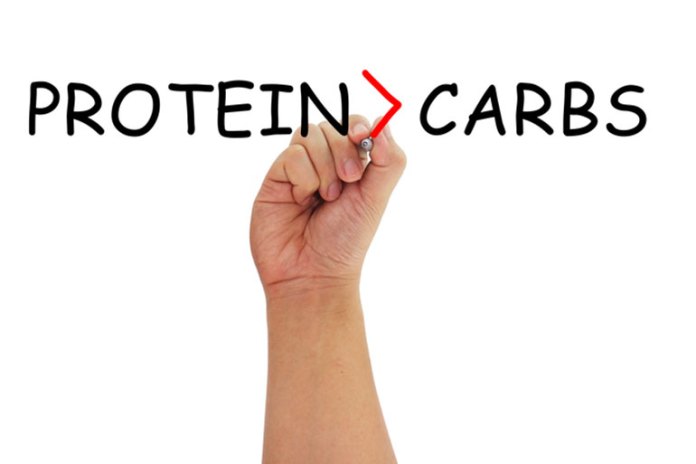The health and wellness marketing specialists are predicting the Keto Diet (from the medical term ‘Ketogenic Diet’) to be the next big trend in the world of dieting, following the Paleo diet. This is likely because top media influencers and world renowned athletes are adopting the ketogenic lifestyle. Lebron James lost 25 lbs by lowering his carb intake and eliminating sugar from his diet. New York Times’ bestselling author – Tim Ferris – used a ketogenic diet to improve his performance and to cure his Lyme disease. Top performing athletes are all shifting to a keto diet, such as the golfing legend – Gary Player and eight-time World Champion Ironman – Paula Newby-Fraser, under the guidance of the world’s top exercise physiologist – Prof. Tim Noakes.
Most importantly – the ketogenic diet – which requires very low carbohydrate consumption, has been scientifically demonstrated to be an effective tool to control type-2 diabetes, mainly with its ability to promote weight loss.1 The ketogenic diet has also shown beneficial effects in people with neurological conditions2 – and most recently – it has also shown positive effects on cancer.3
Why Is Keto Diet Important?

The ketogenic diet was first a therapeutic diet, one that was medically prescribed or recommended as a mode of treatment for a chronic disease. It was first popularized in the early 1900 – as an alternative to fasting – which was one of the treatments for epilepsy at that time.
The ketogenic diet is high in fat, moderate in protein, and low in carbohydrates. By modifying the ratio of macronutrients and reducing the intake of carbohydrates, the body is shifted into a state of ketosis. Ketosis means that the body has modified the way it fuels itself by using fat molecules instead of carbohydrates. Think of it as using electricity, instead of burning wood to heat your house.
In a state of ketosis, your body produces ketones and requires less insulin. This is the main reason why the ketogenic diet is effective for health conditions and weight loss.
The keto diet naturally suppresses appetite. It helps you to feel full so you consume less food. It also regulates the hormones that control appetite, leptin and ghrelin.4 The ketogenic diet promotes insulin sensitivity which can help metabolism5 and increase the fat-burning6 function in your body at all times.
Who Can Do It?
The beauty of the ketogenic diet is that pretty much anyone can do it. Most people can safely follow a keto diet. However, if you are on a medication for metabolic conditions – such as diabetes, high blood pressure, and high cholesterol – you may need to consult your prescribing doctor.
The positive health benefits of a ketogenic diet on metabolic factors such as blood pressure, blood sugar regulation via insulin, and overall inflammation might lead you to require fewer medications, thus it’s good to follow up with your prescribing doctor.
Who Cannot Go On a Keto Diet?
There are very few contraindications to the ketogenic diet. If you have one of the following three conditions, a ketogenic diet is NOT for you. These conditions are very rare and diagnosed by your medical doctors.
- Pyruvate carboxylase deficiency
- Porphyria
- Fat Metabolism disorder
As always, a weight loss diet is not recommended if you are pregnant, trying to get pregnant, breastfeeding, are underweight, or affected by a diagnosed eating disorder.
A Brief Diet Plan

To follow a keto diet, you simply need to follow these steps:
1. Reduce your daily carbohydrate intake to below-30 grams. To do this in a healthy way, you must eliminate all processed carbohydrates, sugar, and grains.
2. Eat 4 to 6 cups of low-carbohydrate vegetables per day, mainly leafy greens and above-the-ground vegetables.
3. Eat a serving of protein at each meal. This is about the size of your palm. Eggs, poultry, meat, and fish are excellent protein sources. Favor fattier cuts of meat and fish, such as chicken thigh vs. chicken breast and wild salmon vs. white fish.
4. Include healthy fat at every meal: Avocado, olive oil, butter, ghee, avocado oil, coconut oil, etc…
5. Drink a lot of water and be sure to include high-quality sea salt in your diet such as Himalayan or Celtic sea salt.
If you can tolerate dairy products well, you can also include hard cheese and heavy cream. However, for those who want to lose weight, I recommend not more than 1 to 2 serving per day of dairy product.
Be consistent. Remember, this is NOT a magic bullet or a miracle pill, which will make you lose 10 lbs in one week. As with any diet, consistency is the number one factor to success.
Keto Diet: A Lifestyle
As a clinical nutritionist, I always teach my patients and followers that a successful weight-loss program shouldn’t promote a temporary change, but rather sustainable changes. They should aim towards achieving total health as opposed to just weight loss.
In my community, the keto diet is called a lifestyle rather than a diet. We are aiming to keep a healthy, low-carbohydrate diet for the rest of our lives. It means, we find ways to make this a permanent way of life which will allow us to sustain the results we have achieved for the rest of our lives.
References





